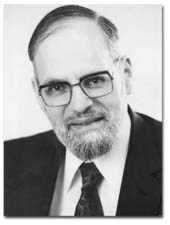Liberty Matters
Pete is Right and Wrong and Right and Maybe Wrong
 I find myself in agreement in many respects with Peter Boettke’s thoughtful response. But I do not think he saves Kirzner’s approach.
I find myself in agreement in many respects with Peter Boettke’s thoughtful response. But I do not think he saves Kirzner’s approach.Where Pete Is Right
It is entirely correct to distinguish between entrepreneurship and the entrepreneurial market process. People can be alert to opportunities in any institutional context. There was entrepreneurship in the Soviet Union, and there is now in North Korea. But it was not and is not an entrepreneurial market process. For that, as Pete rightly argues, there must be property and contract rights, market prices, and profit and loss. These are the broad institutional prerequisites. They are necessary conditions for an effective market process. It is also true, as Mises and others have argued, that individual rationality does not preclude mistakes. I take that to imply that an entrepreneurial market process with the above prerequisites will sometimes produce error or disequilibrating outcomes.
Where Pete Is Wrong
My point is that Kirzner’s institutional framework is too “thin” for the job at hand. We are not arguing, as I said initially, about the comparative merits of socialism and capitalism. For that argument Kirzner’s (and Mises’s) framework is “thick” enough. But if we are going to claim an empirical tendency toward equilibrium we must attend to the transmission of knowledge – the learning processes – in markets in a thicker way. Kirzner does not do that.
Where Pete Is Right Again
On the other hand, if we begin to “borrow” from the work of Vernon Smith, Elinor Ostrom, James Buchanan, Douglass North, Hayek of The Sensory Order (1952)[26] and, I would argue Gerd Gigerenzer, then a synthesis of their work and Kirzner’s will add a great deal of “thickness” to the framework of the entrepreneurial market process. Unfortunately, none of us is entirely sure what this synthesis would look like since it is in the process of emergence – thanks in no small part to Pete’s efforts. I entirely agree that this synthesis is the way to go forward.
Where Pete Is Wrong (Maybe)
So the question – at least for me – boils down to just how important Kirzner’s contribution is to the emerging synthesis. I think that an arbitrage theory of profit does have its strengths – a single unified way of looking at entrepreneurship and market processes. Nevertheless, the focus of Kirzner’s theory has been too much on the arbitrageur aspect and not enough on the creative-insight aspect. It is true that Kirzner does talk about entrepreneurial creativity, but it always seems rather static. If we really incorporate the Hayekian idea of competition (the market) as a discovery procedure, then that process will produce unpredictable outcomes. Agents will have to guess what others are doing or will do or what they expect. Bubbles can happen. Herd behavior can happen. The pursuit of profit and the earning of profit can, in certain epistemic conditions, lead to disequilibration. To find out what limits these phenomena, we must get thicker in our analysis than Kirznerian institutions by themselves allow.
My answer to the question of the importance of Kirzner’s contribution to the synthesis that Pete wants is nuanced. I think Kirzner must get a tremendous amount of credit for bringing up process issues over and over again – since 1973 at least – when many major economists were content to stick with the equilibrium analysis. I think there were also advances in our understanding, especially in the ethics of profit. But the specific approach he pursued is too static for the monumental task of a theory of the market process. This is not to say that the impetus he gave to Austrians and others to pursue these issues was not great. It was and is. After all, there is this discussion. So I give Kirzner much credit in helping develop Austrian economics in a good direction, though perhaps not in exactly the direction he intended.
Endnotes
[26.] Friedrich A. Hayek, The Sensory Order: An Inquiry into the Foundations of Theoretical Psychology, with an introd. by Heinrich Klüver (London: Routledge and Kegan Paul, 1952: University of Chicago Press, 1952).
Copyright and Fair Use Statement
“Liberty Matters” is the copyright of Liberty Fund, Inc. This material is put on line to further the educational goals of Liberty Fund, Inc. These essays and responses may be quoted and otherwise used under “fair use” provisions for educational and academic purposes. To reprint these essays in course booklets requires the prior permission of Liberty Fund, Inc. Please contact oll@libertyfund.org if you have any questions.